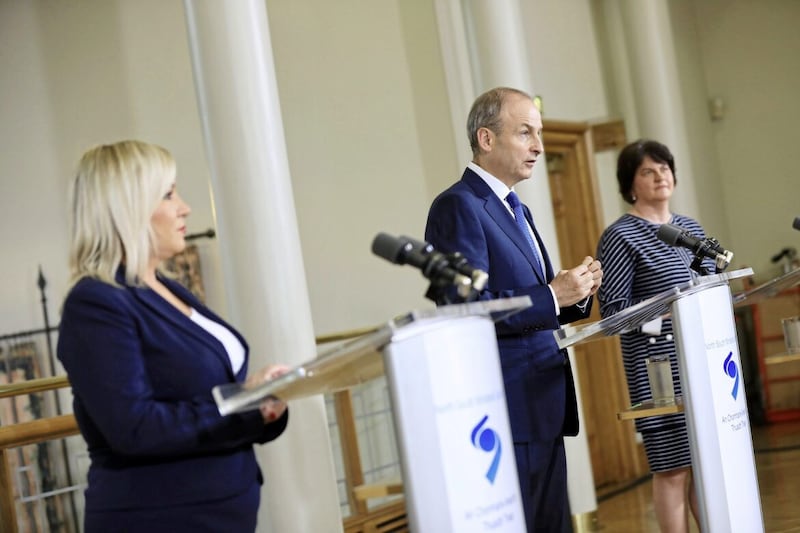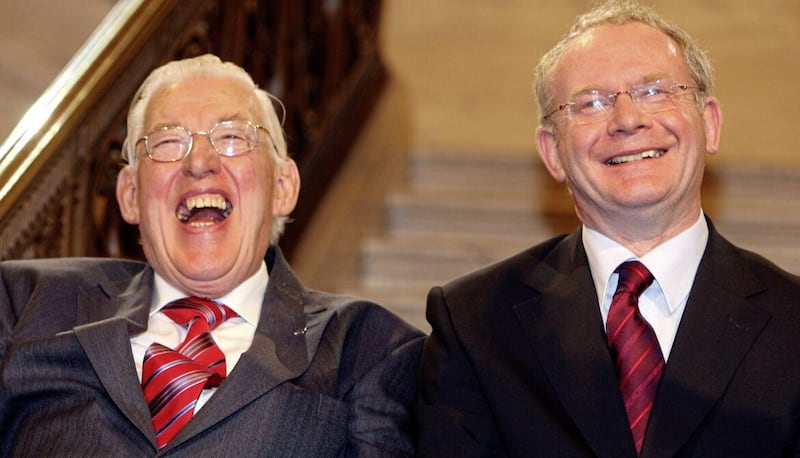Last Sunday marked the 59th anniversary of the historic summit between Unionist Prime Minister Terence O’Neill and Taoiseach Sean Lemass, which was the first direct meeting between the two heads of government on the island of Ireland for 40 years. The new approach, which started cooperation in areas such as tourism and trade, fell by the wayside after the political situation deteriorated in Northern Ireland in the lead-up to the outbreak of the Troubles.
Often regarded as one of the great missed opportunities of Irish history, it was sadly not the last time that we have failed to grasp a major opportunity to move forward and reward political risk-taking when it occurs.
The meeting between O’Neill and Lemass marked the beginning of the end for the premiership of Terence O’Neill and the start of the rise of who was then a little-known Moderator of the Free Presbyterian Church, Ian Paisley.

I know we often wonder if is there a cost to these lost opportunities. There have been so many throughout our history, from this to Sunningdale and now the lack of stable devolution. But looking back through history, you cannot help but think what if these initiatives were given the proper time to develop and grow? How much further down the road in terms of political stability and economic prosperity would we be if the voices that tried to halt these initiatives were not as powerful?
Many of the issues that O’Neill and Lemass were looking to progress are still relevant to this very day and the fact that much of this was halted due to the outbreak of the Troubles is something that we are still playing catch-up on. Even in 2024, we still have not realised the full potential of the north-south economic opportunities.

In Northern Ireland, it is not the first time that we allowed the politics of a situation to trump the economics. The overwhelming and blindingly obvious case that working across the island on important joint issues such as energy and tourism can benefit all corners of the island is getting lost in the politics of sorting out Brexit.
Fifty-nine years ago, two leaders were prepared to take a risk because they believed things could be different and as I write in 2024, they were right
In the mid-1960s, O’Neill had to do battle with conservative elements within unionism who distrusted formal cooperation with the Irish government. In 2024, Jeffrey Donaldson is in a similar situation where the economics point one way, but the politics is more fraught. Within unionism, there is little worse than being regarded as a latter-day Terence O’Neill. Someone who means well and wants to deliver some reform but ultimately sees their vision crash on the rocks of political reality.
Yet, there is something to be said for leaders like O’Neill and Lemass. That these two men, for various reasons, wanted to develop a new relationship on the island of Ireland is something that should be recognised. By today’s standards, it seems unremarkable, but the fact that both men felt compelled to organise the summit in total secrecy gives you some sense of how big a political departure this was.
- How much further down the road in terms of political stability and economic prosperity would we be if the voices that tried to halt these initiatives were not as powerful?Opens in new window
- rstand unionism/loyalism/Orangeism, you need to know it can sniff one drop of Lundyism in a million gallons of undiluted orangeOpens in new window
- Tom Collins: Micheál Martin dances on Lemass’s graveOpens in new window
Now, their early vision is broadly the political consensus approach of all of the mainstream parties across this island.
Quite often we look outward for guidance to see what success looks like. As a much wiser person once remarked, sometimes you have everything that you need in front of you to achieve great things and the key is recognising it and working hard for it.

The 1965 summit is a good reminder that when we have the leadership, the ideas are there for this island to achieve great things. Fifty-nine years ago, two leaders were prepared to take a risk because they believed things could be different and as I write in 2024, they were right. The approach they developed is essentially the one that is followed today.
The politics just needs to trump the economics a little less and we need a renewed sense of risk-taking to take us to the next level of progress.


